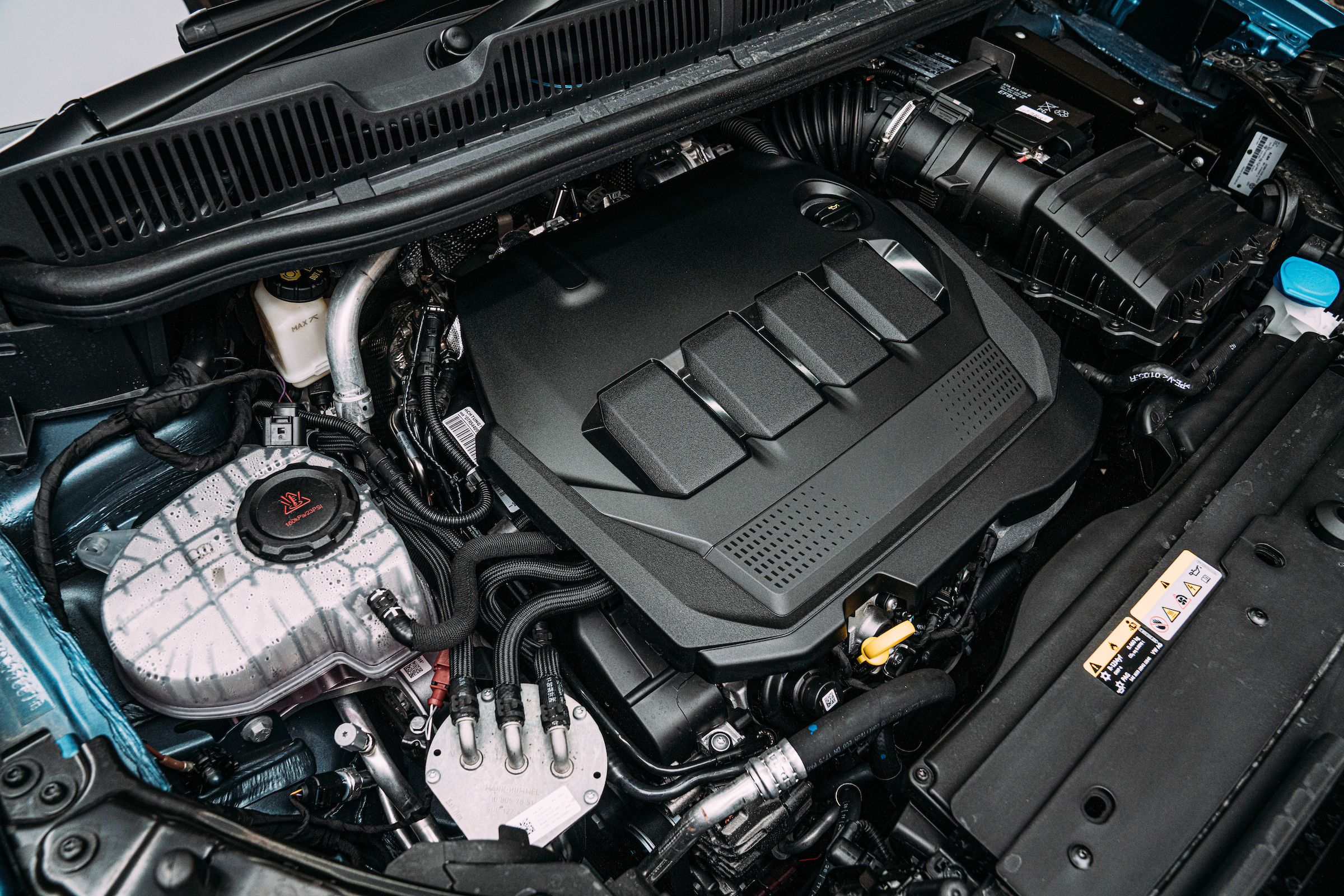First Drive: The Volkswagen Caddy van gets a modern makeover
Volkswagen’s smallest van is back for a fifth generation. Ted Welford finds out if it’s up to the task

What is it?

>
Though it might be Volkswagen’s mid-sized Transporter that grabs the limelight in this brand’s commercial vehicle range, its other models most certainly shouldn’t be sidelined – not least the Caddy, the smallest of the lot.
The outgoing generation arrived in 2014, though it was – in truth – little more than a light update to its predecessor, a van that hit the market almost two decades ago. It’s safe to say that a new Caddy was quite drastically needed then, and here we are with this brand new generation, but does it succeed?
What’s new?

>
There’s quite a lot going on in this new Caddy, and a big chunk of it is borrowed from Volkswagen’s latest Golf. That includes the use of a new MQB platform that allows for further technological advancements – not least the same button-free fully digitalised interior as Volkswagen’s famous hatchback, which we’ll explore in detail later on.
The Caddy’s exterior has also had quite the revamp, or as much as possible with a van, with most prominent changes including a bold colour-coded grille, and gloss black strips that extend around and above the rear lights. A range of new driver assistance features has been added, including optional Travel Assist that joins adaptive cruise control with lane keep assist.
What’s under the bonnet?

>
Though electrification might be sweeping through the van world, the memo hasn’t reached the Caddy just yet, and instead, there’s just a range of 2.0-litre diesels to choose from and a 112bhp 1.5-litre petrol.
When it comes to diesel, power outputs of 74bhp, 101bhp and 120bhp are available, with the latter being used in our test van. You can get this model with four-wheel-drive and a DSG automatic gearbox, but our model makes do with a six-speed manual driving power to the front wheels.
While delivering a healthy amount of punch for a van, it’s also an efficient option. It wasn’t difficult to get close to Volkswagen’s claimed 57.6mpg fuel economy figure, while CO2 emissions of 127g/km are very respectable. This efficiency is helped by a ‘twin dosing’ system that’s able to turn the harmful NOx emissions into water and harmless nitrogen.
What’s it like to drive?
Perhaps the greatest compliment you could pay a van is to say it drives like a Golf, but that’s largely how the Caddy behaves. With car-like handling and a punchy and refined engine that feels far more powerful than its 120bhp figure suggests, it really is a very pleasant thing to be behind the wheel of.
The ride is also fantastic, proving especially comfortable and helped by Volkswagen’s excellent ‘ErgoComfort’ seats that provide plenty of support and adjustment – ideal for those that spend a lot of time behind the wheel.
It’s not all perfect, though, as there are disappointing levels of wind and road noise. Additional soundproofing is certainly a job for the facelift.
How does it look?

>
Divisive is probably the easiest way to describe the new Caddy. Perhaps we were all so used to its predecessor that after almost two decades when the time came to change it, it was always going to split opinion. The body-coloured grille is one of the most interesting touches, and though it didn’t look too bad on our dark blue test van, on brighter shades it looks like someone’s got carried away with a spray can.
The dimensions have also changed, with the new Caddy being noticeable longer – even in standard form – while also being slightly wider and lower than before.
What’s it like inside?

>
Step inside the new Caddy from the old van and you’d question whether the cars were even from the same brand, never mind the same model. There’s hardly a button in sight, with a touchscreen handling most key features. Though it certainly looks the part – and gives the Caddy the most modern-looking interior possible of any van – it’s not all that easy to use, especially the climate settings embedded within it.
Things fare better once you’re behind the passenger area, though, with noticeable improvements in cargo space. Highlights include wider-opening rear doors and a wider cargo area, with this meaning that a Euro pallet can now be carried sideways in the back. Maxi models are 21.5cm longer and also feature wider sliding doors that mean it can hold two Euro pallets. Despite the improvements, rivals offer more space still.
What’s the spec like?

>
The Caddy Cargo – don’t get it confused the passenger model that’s simply called ‘Caddy’ comes in the choice of three trims – Commerce, Commerce Plus and Commerce Pro.
Regular models get the basics like cruise control, a 6.5-inch touchscreen and a driver attention alert, but we’d recommend the ‘Plus’ grade that gets you body-coloured bumpers, rear parking sensors, climate control and the aforementioned ‘ErgoComfort’ seats. If you’re happy to splash the cash, choose the ‘Pro’, which gets you 16-inch alloy wheels, LED rear lights, electric folding mirrors and a large 10-inch touchscreen system that mirrors that found in the Golf.
Prices for the Caddy Cargo (including VAT), start from £22,674 for the standard car, though our mid-range model cost £26,418 with a few optional extras.
Verdict
There’s no denying that Volkswagen has done a great job of bringing the Caddy bang up to date. Where the old van felt dated, this new model feels every bit as modern as many cars on the road today and drives better than plenty of them too.
Though the tech-laden interior doesn’t quite hit the mark, the new Caddy is very generally a pleasant van, and one of the best models in its segment today.





